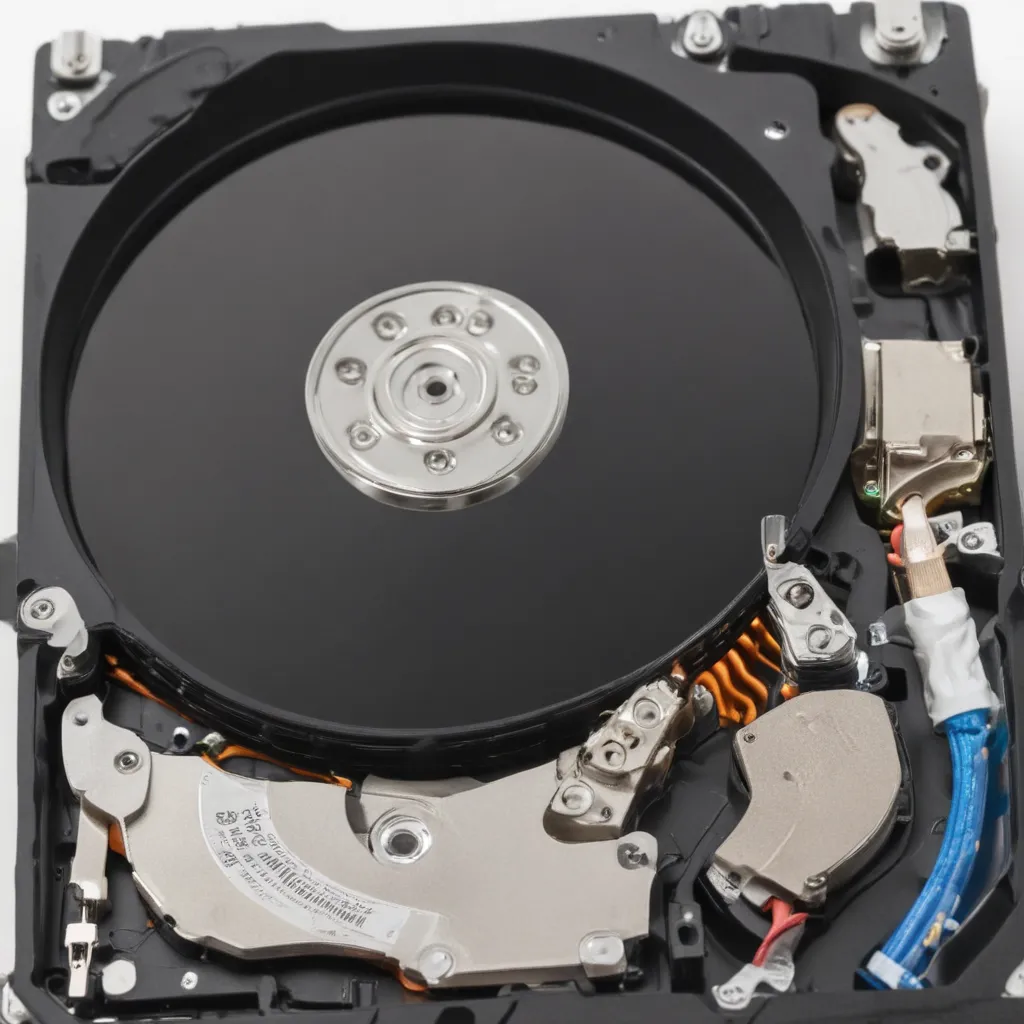Is Your Hard Drive Making Noises? Well Diagnose It
Ah, the dreaded hard drive noises – those ominous clicks, whirs, and gurgles that strike fear into the heart of any computer user. If your once-silent storage companion has suddenly started channeling R2-D2, don’t panic. As a seasoned tech tinkerer, I’ve heard it all, from the gentle hum of a well-oiled machine to the death rattles of a drive on its last legs.
Decoding the Mysterious Sounds
Let’s start with the basics. Hard drives, like any other mechanical device, make a variety of sounds during normal operation. A gentle whirring as the platters spin, the occasional soft click as the read/write heads do their dance across the disks – these are all perfectly normal and expected. [1] In fact, if your drive is completely silent, that might actually be a cause for concern!
However, there are certain sounds that can be red flags, indicating potential issues with your hard drive’s health. A persistent, rapid-fire clicking noise is one such warning sign. This could mean the actuator arm, which controls the movement of the read/write heads, is malfunctioning and struggling to access data. [2] If the clicking is accompanied by grinding or scratching sounds, it’s an even more ominous sign – your drive’s internal components may be physically damaged, and continued use could lead to catastrophic data loss. [5]
Another concerning sound is a loud, grinding or whining noise. This could suggest issues with the drive’s spindle motor, which is responsible for spinning the platters. If left unchecked, this can quickly escalate into a full-blown drive failure. [5]
Diagnosing the Problem
So, how do you go about figuring out what’s causing those worrying noises? The first step is to isolate the source. Disconnect the drive from your computer and see if the sounds persist. If they do, then the issue is likely with the drive itself, rather than a problem with the connection or your system. [6]
Next, try running some diagnostic tests. Tools like CrystalDiskInfo or GSmartControl can provide detailed information on your drive’s health, including S.M.A.R.T. (Self-Monitoring, Analysis, and Reporting Technology) data. [1] This can give you a clearer picture of any issues, such as bad sectors or impending failures.
Another handy tool is the manufacturer’s own utility software. For example, Seagate offers Seatools, which can run comprehensive tests on your drive and provide a comprehensive health assessment. [5] Western Digital has their own set of drive utilities as well. [6]
Troubleshooting and Next Steps
If the tests reveal that your drive is indeed experiencing issues, it’s time to take action. The first step is to back up your data, pronto. Don’t wait until it’s too late – the noises you’re hearing are a clear warning sign that your drive’s days are numbered. [6]
Once you’ve got your data safely stored elsewhere, you can try some basic troubleshooting. Check the cable connections, both at the drive and the computer end. A loose or faulty cable can sometimes cause strange noises. [6] You can also try repositioning the drive, as vibrations from a desk or other surface can amplify the sounds. [5]
If those simple fixes don’t do the trick, it may be time to consider replacement or repair options. Depending on the severity of the issue, you may be able to find a compatible replacement drive and transfer your data over. Or, if the damage is more extensive, you may need to enlist the help of a professional data recovery service. [5]
Remember, the key is to act quickly when you start hearing those ominous noises. A hard drive failure can be a devastating event, with the potential for permanent data loss. By staying vigilant and taking proactive steps, you can give your trusty storage companion a fighting chance – and keep your precious files safe and sound.
[1] Knowledge from https://superuser.com/questions/171195/how-to-check-the-health-of-a-hard-drive
[2] Knowledge from https://www.quora.com/Why-is-my-PC-making-a-clicking-noise-It-doesnt-make-any-noise-as-it-first-starts-up-but-after-a-few-it-starts-making-a-clicking-noise-Im-sure-it-isnt-the-fans
[5] Knowledge from https://www.seagate.com/support/kb/identifying-hard-drive-sounds-and-determining-what-they-mean/
[6] Knowledge from https://community.wd.com/t/hard-drive-this-rapid-clicking-noise-normal/280901













